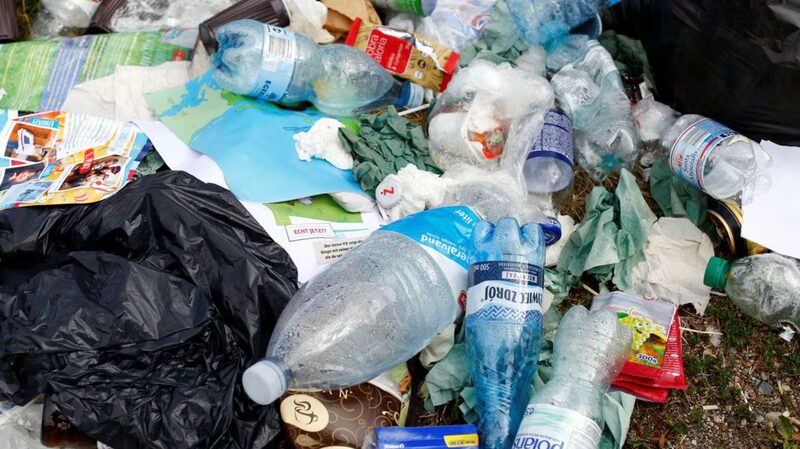The European Union has reached a provisional agreement on a groundbreaking law aimed at significantly reducing packaging waste and banning single-use plastics by 2030. This move comes as the EU grapples with a more than 20% increase in packaging waste over the past decade, largely driven by the surge in online shopping and 'grab and go' consumer habits.
Under the new legislation, each European citizen currently generates nearly 190 kilograms (419 pounds) of packaging waste annually. Negotiators from the European Parliament and Belgium, the current holder of the six-month rotating EU presidency, have set ambitious reduction targets of 5% by 2030 and 15% by 2040. A key component of the agreement mandates that all packaging must be recyclable by 2030.
The law will impose a ban on various single-use plastic items, including disposable plates, cups, and boxes commonly used by fast food restaurants. Additionally, shrink-wrap for suitcases at airports and lightweight grocery bags will be prohibited. In a significant health-focused measure, the EU will also ban 'forever chemicals' (per- and polyfluorinated alkyl substances or PFASs) in food contact packaging.
Beyond bans, the agreement introduces re-use targets, such as a 10% requirement for take-away packaging and drinks containers, with exceptions made for wine and milk packaging. Cardboard packaging will be exempt, addressing concerns raised by member states like Finland.
To tackle the issue of excessive packaging dimensions, negotiators have agreed that empty space within packages should not exceed 50%, effectively ending the trend of oversized boxes used in online deliveries. It's important to note that these targets will not apply to very small businesses, providing them some relief amidst the regulatory changes.
While the agreement marks a significant step forward in the EU's sustainability efforts, it still awaits approval from the European Parliament and individual EU governments. The upcoming EU elections in June add an element of uncertainty to the finalization of this landmark legislation.
Reference(s):
cgtn.com




